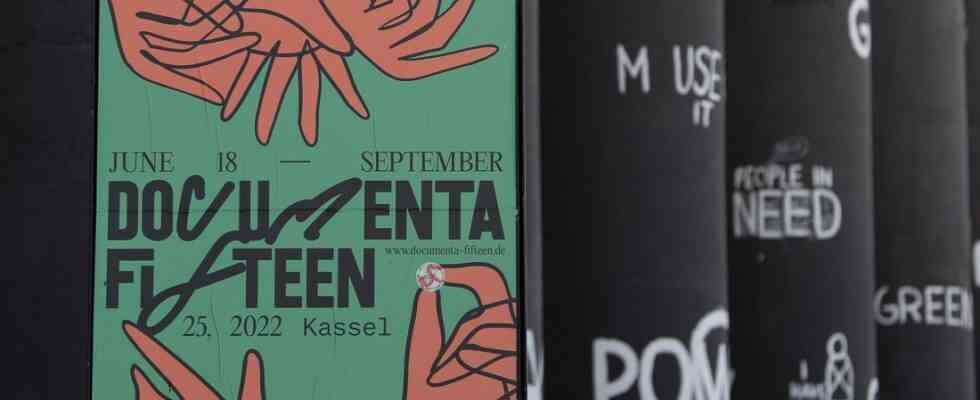The Documenta brings together numerous artists whose works develop constructive ideas for a global future. Therefore a visit is definitely worthwhile. Among the works of the approximately 1,500 participants, however, some are now known that make you wonder how something like this could have happened: they are not aimed at dialogue, but at propaganda effects.
Also includes most notably the openly anti-Semitic cartoon by the Indonesian collective Taring Padi: a figure with fangs, side curls, a kippa under his hat and an SS sign on it – which combines several hateful stereotypes of longstanding international hatred of Jews, and then also reverses guilt: the Jew becomes a Nazi.
But film works by the collective Subversive Films from Brussels and Ramallah are also problematic. Not because they take on the Palestinian domestic perspective – that’s exactly what they’re not doing. The collective presents Japanese pro-Palestine films from the 1970s under the name Tokyo Reels Film Festival in the Hübner-Areal and in the Gloria cinema. You can see propaganda, propaganda that has grown in democracies. In a revolutionary kitsch that is incomprehensible today, wildly cut images from US westerns are associated with the Palestinians, implicitly glorifying them as supposedly morally superior natives. Which is a poisoned compliment, since it conveys all the stereotypes of the noble savage.
It’s also about other countries in the region like Kuwait, always far from reality. Camera work and the choice of the protagonists are not documentary, but it is immediately staged, as glorious as possible. Various more anti-Israel political organizations appear to have sponsored the films.
The then director of the PLO Organization for Arts and National Culture was responsible for the film “The Urgent Call of Palestine”. It features singer Zeinab Shaath singing in English that the alternative to fighting is death. Other film clips praise the Japanese supporters of the Palestinians like a bad infomercial.
It could have been an educational project. The opposite is the case
The collective around Mohanad Yaqubi and Fadi AbuNe’meh painstakingly restored the 16 millimeter films. They invoke the idea of archives – but if you look at the works, you get the impression that the artists want to initiate a new wave of support for Palestinians.
Zeinab Shaath singing in English: Screenshot of the film “The Urgent Call of Palestine” by Ismail Shammout (1973).
(Photo: Screenshot/Vimeo)
Because the commentary remains minimal. It is obviously not a question of debunking this propaganda and holding up a mirror to would-be revolutionaries in the industrialized countries, who, half a century ago, projected their desire for sublime originality onto the Palestinians, thereby fanning resentment against Israel or willingly accepting it. That would have been an educational project. It could have led to a real dialogue with the Documenta guests from Europe. And to reflect on their own long-standing ideological entanglements in the Middle East conflict.
But that was missed. And then the question arises whether the upper collective Ruangrupa curated, i.e. helped to select and accompany the works. If so, is that what you wanted? And if not, it’s a mistake anyway.
Either way, those responsible for the Documenta in Germany are responsible evident in several cases failed.

